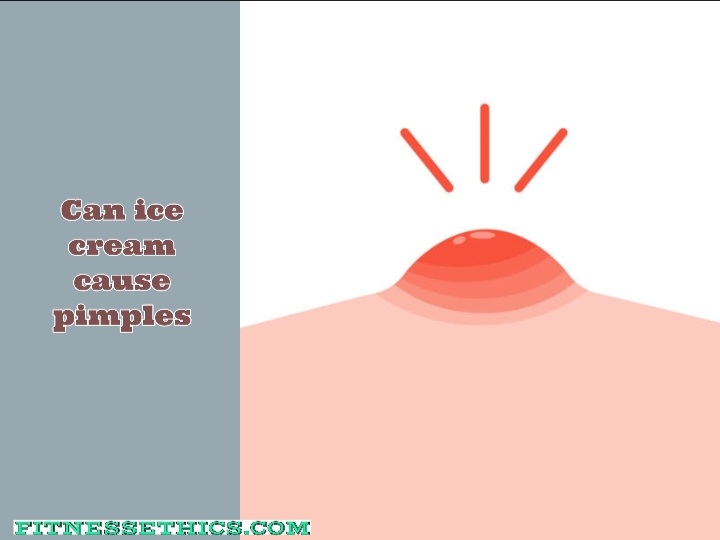There’s no denying that ice cream is a delightful treat that brings joy to many. However, the effects it may have on our skin, particularly when it comes to pimples and acne, have sparked much debate. In this article, we’ll delve into the question of whether ice cream can cause pimples and explore its potential impact on acne-prone skin. Let’s uncover the truth behind this popular frozen dessert and its effects on our skin health.
Is Ice Cream Bad for Acne?
Acne is a common skin condition that affects millions of individuals worldwide. It occurs when hair follicles become clogged with oil and dead skin cells, leading to the formation of pimples, blackheads, and whiteheads. The link between diet and acne has been a subject of interest for researchers and health enthusiasts alike.
One factor that could contribute to acne breakouts is the consumption of dairy products, including ice cream. Dairy products, such as milk and cheese, are known to contain hormones and growth factors, which can potentially stimulate oil production in the skin. This increased oil production can lead to clogged pores, providing a favorable environment for acne-causing bacteria to thrive.
Furthermore, ice cream, as a dairy product, often contains a high amount of sugar and processed carbohydrates. These sugary treats can cause rapid spikes in insulin levels, triggering inflammation throughout the body, including the skin. Inflammation plays a significant role in exacerbating acne, making it important for individuals with acne-prone skin to be mindful of their sugar intake, including that from ice cream.
Is Ice Cream Bad for Your Skin?
Apart from its potential impact on acne, ice cream can also have other negative effects on our skin. The high sugar content in ice cream leads to a process called glycation, where sugar molecules bind to collagen and elastin fibers in the skin. Collagen and elastin are essential proteins that provide structure and elasticity to the skin, keeping it firm and youthful.
When sugar molecules attach to collagen and elastin, they become stiff and less functional, resulting in premature aging signs, such as fine lines, wrinkles, and sagging skin. Moreover, glycation promotes the production of harmful molecules called free radicals, which can further damage skin cells and accelerate the aging process.
It’s worth noting that individuals with preexisting skin conditions, such as eczema or rosacea, may find that consuming ice cream exacerbates their symptoms. Both sugar and dairy have been linked to worsening inflammatory skin conditions, and in such cases, it’s essential to be cautious about consuming ice cream and monitor its effects on the skin.
Conclusion
While indulging in a scoop of ice cream every now and then can bring joy to our taste buds, it’s essential to be aware of its potential impact on our skin. For those with acne-prone skin, the hormones and growth factors found in dairy products, combined with the high sugar content in ice cream, could contribute to breakouts and inflammation.
Moreover, the glycation process caused by sugar can damage collagen and elastin, leading to premature aging signs. Individuals with specific skin conditions should pay extra attention to how ice cream affects their skin and consider alternative, skin-friendly treats.
As with any dietary concern, moderation is key. Enjoying ice cream occasionally is unlikely to cause significant harm to most people. However, if you notice adverse effects on your skin after indulging in this sweet treat, it might be worth reducing your intake or exploring alternative options.
Remember, maintaining healthy skin is not just about what you put on the outside but also what you put on the inside. A balanced diet, proper hydration, and a consistent skincare routine tailored to your skin type can go a long way in supporting overall skin health. Always consult with a dermatologist or healthcare professional if you have specific concerns about your skin or dietary choices.
[starbox]



